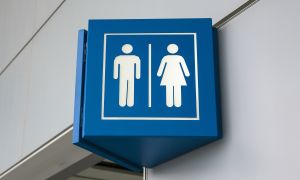Advertisement
The pioneering sex researchers Masters and Johnson first developed this four-stage model for understanding male sexual response back in the 1960s and it still holds true today:
- Excitement: Excitement starts with stimulation. That stimulation can be physical (your touch, masturbation, or some other type of contact with the penis or other part of the body), or mental and emotional (fantasy, thoughts about you, pornography, or simply gazing at a sexy billboard). Virtually anything can provide emotional fuel for an erection, depending on what a guy finds arousing.
- Plateau: A man's excitement tends to plateau or level off before he gets even more aroused. During this phase, his body approaches orgasm and he usually has a full erection. As he gets ready to come, his abs and thighs tighten, his hands and feet clench, and his breath gets quicker and more uneven.
- Orgasm: For many people, this third stage is the best part of sex. During orgasm, all that tension that's been building up is finally released. The physical signs that started in the plateau phase -- higher blood pressure, rapid breathing, muscle contractions -- kick into overdrive. This is also when a man crosses his point of ejaculatory inevitability and can't stop himself from climaxing, no matter what.
- Resolution: The final phase of sexual response occurs after your guy's orgasm. It's basically a time for his body to relax: The tension seeps out of his muscles, his blood pressure sinks, and his excitement dissipates. Lots of men feel sleepy during resolution and -- unless he's a teenager -- his penis will also take a break. This time, during which his body recovers after orgasm and he can't get an erection again right away, varies depending on his age and is called the refractory period.
Continue Learning about Men's Health
Important: This content reflects information from various individuals and organizations and may offer alternative or opposing points of view. It should not be used for medical advice, diagnosis or treatment. As always, you should consult with your healthcare provider about your specific health needs.




